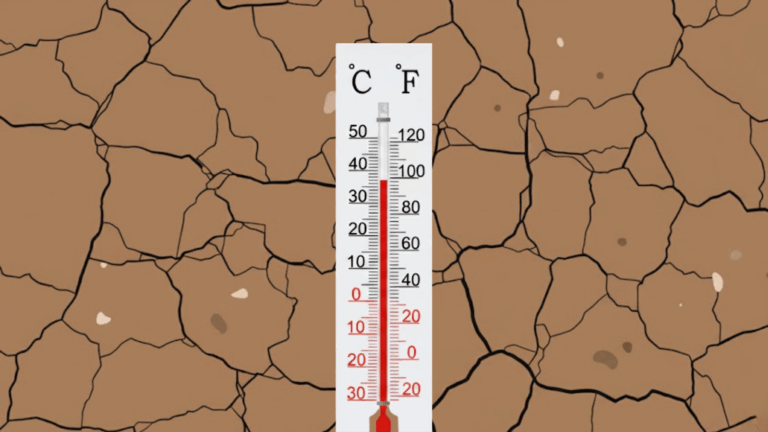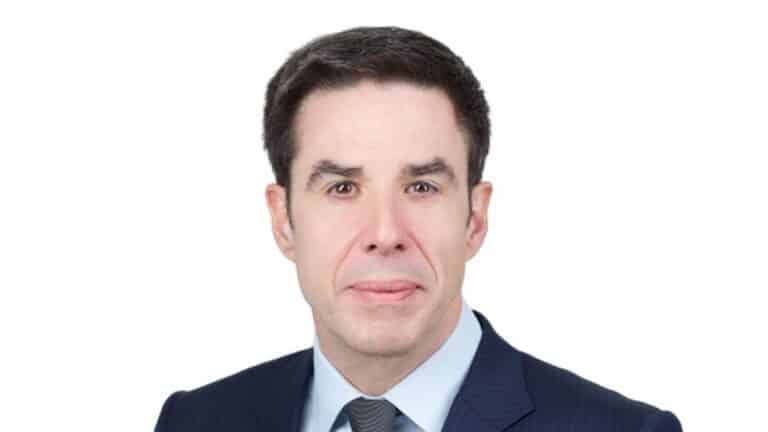This website uses cookies as well as similar tools and technologies to understand visitors’ experiences. By continuing to use this website, you consent to Columbia University’s usage of cookies and similar technologies, in accordance with the Columbia University Website Cookie Notice.
Energy Explained
Insights from the Center on Global Energy Policy
This Energy Explained post represents the research and views of the author(s). It does not necessarily represent the views of the Center on Global Energy Policy. The piece may be subject to further revision.
Contributions to SIPA for the benefit of CGEP are general use gifts, which gives the Center discretion in how it allocates these funds. More information is available here. Rare cases of sponsored projects are clearly indicated.
- As the host of COP30, Brazil has a unique opportunity to help shape the future of global carbon markets by leveraging its experience in nature-based solutions.
- The numerous practical frameworks that Brazil has created demonstrate that economic development and forest protection can co-exist and can serve as models for other countries.
- Brazil’s experience with Indigenous partnerships offers valuable insights for embedding scalable rights-based approaches in carbon markets.
As the host of the annual UN Conference of the Parties (COP30), Brazil has an unprecedented platform to demonstrate its climate leadership. In the lead up to the proceedings, it has already established the Circle of Finance Ministers, a group of 35 countries that aims to advance the Baku to Belém Roadmap to USD 1.3 trillion annually by 2035 in support of climate action in developing countries, and begun negotiating with global investors, including TPG and Brookfield, to raise nearly $4 billion for climate projects through its development bank, BNDES. At the conference itself, Brazil plans to launch a $125 billion scheme called Tropical Forests Forever Facility to support tropical countries with low deforestation rates by increasing resources for forest conservation and restoration programs. The fund aims to raise $25 billion in concessional capital from governments and philanthropic sources that can then be leveraged to mobilize an additional $100 billion from private-sector investors.
Beyond these initiatives, Brazil has an opportunity to shape the development and growth of global carbon markets, particularly their non-compliance portion, or project-based carbon credit markets, which have struggled to scale up. As this blog post details, it can do so by tapping into its unique experience in several domains related to forest carbon solutions and Indigenous partnerships, including nature-based solutions, environmental integrity, equitable-benefit distribution, and rights-based approaches.
Leadership Areas for Brazil
Nature-based solutions
Brazil has the largest potential for nature-based solutions globally, and it has cultivated experience and achieved many successes in this area from which other countries can learn:
- From 2004 to 2012, Brazil reduced Amazon deforestation by 84 percent while growing agricultural GDP by 65 percent, providing a practical example of how economic development and forest protection can coexist.
- The country’s state-level Reducing Emissions from Deforestation and Forest Degradation (REDD+) programs, including the agreement for Acre’s jurisdictional REDD+ program, offer an example of how to integrate project-level activities into national accounting systems, directly addressing a challenge that other countries may face when implementing Article 6 of the Paris Agreement. Amazon REDD+ could generate up to $20 billion this decade through such jurisdictional programs.
- Jointly with Norway, Brazil created the Amazon Fund, a mechanism to raise international funding for non-reimbursable investments in REDD+ projects, which resumed full operations in 2023 after a break during the previous administration. Its results-based payment approach provides a tested framework that can inform the operationalization of methodologies for forest-based credits in Article 6.4, dedicated to creating a UN-supervised global carbon market. The fund has demonstrated effective international cooperation mechanisms that align with the cooperative approaches of Article 6.2, a decentralized framework for bilateral trading of carbon units.
- The Nature-based Solutions Alliance, which was initiated by several prominent REDD+ developers, offers a model for carbon project developers to work together cohesively and with the government by providing a unified voice for the sector and conveying direct and clear guidance for policymaking and market structure.
- The Brazilian government has launched an innovative concession model in partnership with the State of Pará that transfers deforested land to private companies for restoration. This approach demonstrates how countries can mobilize private finance to restore forests while still advancing parallel state initiatives and broader NDC targets. In Brazil’s case, such initiatives include the Arc of Restoration, which targets 6 million hectares in the Amazon for restoration by 2030, and the NDC target is to restore 12 million hectares nationally by the same year.
Environmental integrity
Brazil has strengthened its environmental credibility globally through recent policy shifts that can serve as a model to other countries:
- Brazil’s New Industry Brazil (NIB) plan showcases an industrial policy with sustainability and decarbonization at its core. The plan is intended to foster foreign direct investment (FDI) and reduce permitting bottlenecks to stimulate national industry. The government will direct around R$300 billion ($56 billion) to this effort in special credit lines and non-refundable resources aligned with the objectives and priorities of the plan.
- Brazil has been vocal about the need to standardize carbon accounting practices internationally to support carbon market expansion and cross-border trade. To this end, it will put forward a proposal during the COP to establish a voluntary coalition of countries that will attempt to harmonize standards and link their carbon credit trading systems.
- Brazil’s forest-monitoring systems, including real-time deforestation alerts, could inform more robust verification protocols for nature-based credits.
Equitable benefit distribution and rights-based approaches
Brazil’s Indigenous partnerships offer valuable insights for embedding rights-based approaches in carbon markets:
- In May 2025, Brazil’s National REDD+ Commission (CONAREDD+) approved a resolution establishing comprehensive Free, Prior, and Informed Consent (FPIC) requirements and safeguards for Indigenous peoples in REDD+ projects.
- The national regulated carbon market, which was passed into law in December 2024, guarantees ownership of credits by Indigenous communities on Indigenous lands.
- Brazil’s Ministry of Indigenous Peoples has launched a new initiative in cooperation with the international organizations Forest Trends and GreenData that is intended to strengthen Indigenous governance in climate finance, biodiversity-based value chains, and Indigenous leadership training.
- The Brazil Restoration and Bioeconomy Finance Coalition’s ambitious $10 billion mobilization target demonstrates the Brazilian government’s commitment to restoring forests and boosting the bioeconomy in a way that aligns with the new FPIC requirements and Indigenous rights protections.
The Path Forward
For Brazil to expand its influence as a climate leader even beyond COP30, it could consider pursuing the following steps:
Address domestic implementation challenges: While Brazil’s forest protection credentials have improved, the Pará concession model faces legal challenges from federal prosecutors who argue it violates Brazil’s new carbon market law and lacks proper consultation with Indigenous communities. The estimated R$1 billion ($189 million) from carbon credit sales through a deal with the LEAF (Lowering Emissions by Accelerating Forest Finance) Coalition ― a public–private partnership that provides financial incentives to countries to reduce deforestation ― remains under legal scrutiny, creating uncertainty about implementation timelines.
Support the operationalization of Article 6: Brazil could champion the development of differentiated frameworks for nature-based solutions within Article 6.4 methodologies for demonstrating the additionality of projects. Investment analysis has been adopted by the Supervisory Body of Article 6.4 as the primary tool for assessing additionality following COP29, but this approach is often ill-suited to forest conservation projects. Brazil can propose alternative approaches based on its jurisdictional REDD+ experience and the operational lessons from the Amazon Fund. For Article 6.2 implementation, the dual-layer international registry system, which requires verification of the underlying environmental quality of credits, could benefit from Brazil’s forest-monitoring system.
Build coalitions on rights-based approaches: At COP30, Brazil could propose standardized frameworks requiring FPIC requirements ― using the CONAREDD+ resolution as a model ― for all Article 6 projects affecting Indigenous territories and traditional communities, establishing this approach as a global standard rather than an optional safeguard.
Strengthen institutional capacity: There is a need for capacity building globally to ensure that the carbon projects being submitted to registries can issue credits in a reasonable timeframe and thereby keep landowners engaged and committed. This could be provided at the government level through enhanced environmental oversight, which is severely understaffed and underfunded at present. Brazil, in alliance with other forest-rich nations, can leverage its experience in strengthening institutional capacity under the Ecological Transformation Plan, launched two years ago, that focused on training across various sectors to support the transition to a green economy.
Given its strong domestic governance and international leadership on rights-based approaches and environmental integrity, Brazil is well placed to shape carbon credit markets toward greater effectiveness, equity, and credibility. The convergence of the Amazon setting as the location for the COP30 convening, Brazil’s enhanced institutional capacity, and operational Article 6 mechanisms creates a unique opportunity for it to do so.
More on Energy Explained Energy Explained
COP30 and Beyond: The Implications of a New Era of Discord in Global Climate Politics
As diplomats meet in Brazil for COP30, global resolve to tackle the climate challenge appears badly frayed.

Six Key Issues That Defined Climate Week 2025
CGEP scholars reflect on some of the standout issues of the day during this year's Climate Week

Renewable Energy Development in the GCC: Progress Made and Challenges Ahead
Gulf Cooperation Council (GCC) countries have not only the world's lowest costs for oil and gas production but also the lowest costs for electricity generated from renewable energy sources.

3 Coming Flashpoints in Climate Geopolitics
World leaders are meeting in New York this month at the request of the United Nations Secretary-General António Guterres to discuss the state of global ambition on climate change.

Relevant
Publications
Regulatory Progress for Project-Based Carbon Credit Markets: Pre-COP30 Roundtable Summary
On November 6, 2025, in the lead-up to the annual UN Conference of the Parties (COP30), the Center on Global Energy Policy (CGEP) at Columbia University SIPA convened a roundtable on project-based carbon credit markets (PCCMs) in São Paulo, Brazil—a country that both hosted this year’s COP and is well-positioned to shape the next phase of global carbon markets by leveraging its experience in nature-based solutions.

Opinion: Time for CT to rethink its climate strategy
Connecticut needs an honest debate, and fresh thinking, to shape a climate strategy fit for today, not 2022.

Climate Ambition and Electricity Affordability: Lessons from Connecticut




